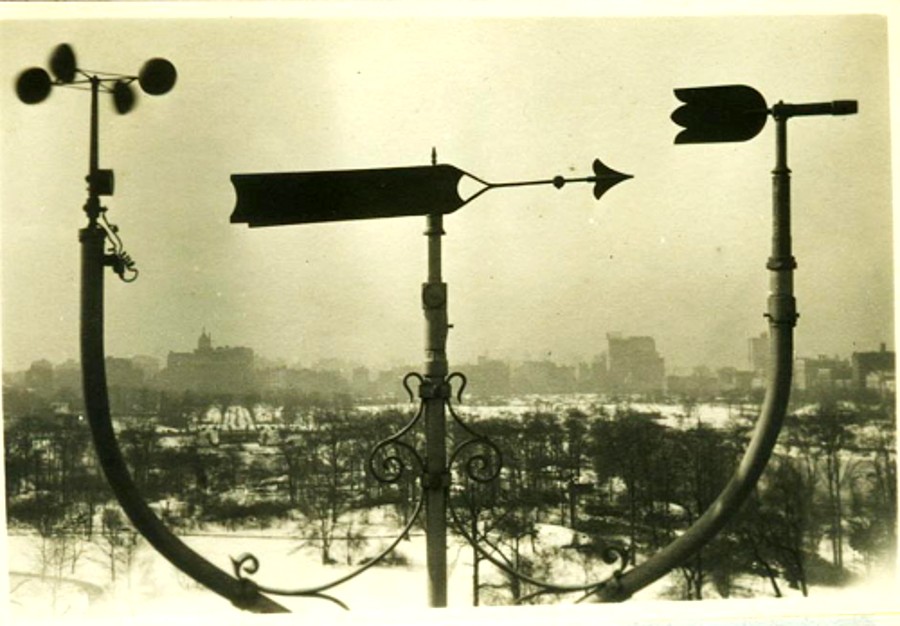
New York Attorney General Letitia James sent a letter to Federal Communications Commission (FCC) Chairperson Jessica Rosenworcel and President and CEO of CTIA (the Wireless Association) Meredith Attwell Baker.
The letter is urging them to work together to expand language accessibility for severe weather alerts. Current FCC rules only require the wireless cell phone industry to distribute Wireless Emergency Alerts (WEAs), such as cell phone alerts from the National Weather Service (NWS) warning of severe weather events, in English and Spanish.
In March 2022, citing the deadly aftermath of Hurricane Ida in New York City, which disproportionately affected immigrants from Asia with limited English proficiency, Attorney General James sent a letter to NWS calling for increased language accessibility. The NWS Acting Director at the time told the Office of the Attorney General (OAG) that NWS supports the transmission of its WEAs in many languages but that would require the FCC to establish new rules for use of languages beyond English and Spanish. Without expanded language accessibility for WEAs, immigrant communities nationwide, including an estimated 1.3 million New Yorkers statewide who have limited English proficiency and do not speak Spanish, lack access to critical information to protect themselves and their families from severe weather events.
“Wireless emergency alerts save lives,” said Attorney General James. “The next severe weather event is not a matter of if — but when. The FCC and the nation’s wireless industry must accelerate working together to expand language accessibility and make life-saving emergency warning systems more equitable for our immigrant and non-English-speaking communities.”
As Hurricane Ida ravaged New York City in September 2021, NWS sent several WEAs to all WEA-enabled mobile phones in the area warning of a flash flood emergency. Flash flooding from the storm caused 18 deaths in New York state; the majority of those victims were Asian immigrants and resided in communities with high rates of limited proficiency in English or Spanish, based on census data. However, the WEAs were only sent in English and Spanish.
The New York State Office of Emergency Management (OEM) and New York City Emergency Management (NYCEM) both send emergency alerts for severe weather and other emergencies via automated text messages, phone calls, e-mails, or social media, and NYCEM’s alert system Notify NYC can send messages in 13 languages in addition to English (including American Sign Language). However, because opt-in messages are not automatically delivered to all WEA-enabled mobile phones like NWS alerts are, their reach is limited. FCC and wireless industry collaboration is urgently needed to expand the languages in which WEAs can be transmitted.
In 2016, FCC published a rule requiring participating wireless providers to support Spanish-language WEAs by the end of 2019, and providers were encouraged to build capacity for alerts in additional languages as well. To date, the U.S. wireless industry has not done so. Attorney General James urges FCC to propose a rule within a year that sets a reasonable timeline for the wireless industry to support alerts in languages beyond English and Spanish, prioritizing languages with higher rates of limited English proficiency.
“In my district, where three Asian immigrants lost their lives during Hurricane Ida, 72 percent of the residents are Asian and over 90 percent of Asian senior citizens have limited English proficiency,” said New York City Council Member Sandra Ung. “This means they are effectively excluded from access to important lifesaving alerts that can help them protect themselves and their loved ones. It is time for the FCC to recognize the need to communicate important emergency alerts in languages beyond English and Spanish, and I want to thank Attorney General Letitia James for her leadership and advocacy on behalf of the greater immigrant community in New York and the rest of the nation.”
“It’s been over a year since one of our families in Woodside tragically died during Hurricane Ida and having severe weather warnings in multiple languages could have saved their lives,” said New York City Council Member Julie Won. “We can’t wait for more of our neighbors to die for there to be a culturally competent emergency notification system. By the end of this year, I am looking to pass two bills to expand language access for emergency notifications and city services and have secured $5 million to make this a reality. I stand with the Attorney General in holding the FCC and U.S. Wireless Industry accountable and fighting for the expansion of life-saving language access.”
“Language access continues to be an issue our community members face, often with life and death consequences,” said Jo-Ann Yoo, Executive Director, Asian American Federation. “The deaths caused by Hurricane Ida made it abundantly clear that our government must do a better job of showing up for our immigrant communities, in the languages they speak, and when they need their government the most. That’s why we’re joining calls for the FCC to establish new rules aimed at increasing the language accessibility of critical Wireless Emergency Alerts. A failure to provide in-language outreach has dire consequences and we must do better, and quickly.”
“Language accessibility is a critical priority for New York City’s immigrant communities, but when it comes to receiving essential emergency alerts, it’s a life and death issue,” said Thomas Yu, Executive Director, Asian Americans for Equality (AAFE). “We witnessed the devastating consequences during Hurricane Ida when millions of people were deprived of important information to protect their families. We urge the FCC to act swiftly to ensure that severe weather bulletins are disseminated in Chinese, Korean, Bengali, and other languages are commonly spoken by New Yorkers with limited English language proficiency.”
This matter is being handled by Assistant Attorneys General Mihir Desai and Max Shterngel, and Environmental Scientist D Pei Wu under the supervision of Deputy Bureau Chief Monica Wagner of the Environmental Protection Bureau. The Environmental Protection Bureau is led by Lemuel M. Srolovic and is a part of the Division for Social Justice, which is led by Chief Deputy Attorney General Meghan Faux and overseen by First Deputy Attorney General Jennifer Levy.
Photo credit: Old Central Park wind indicator 1960’s.
Become a Harlem Insider!
By submitting this form, you are consenting to receive marketing emails from: Harlem World Magazine, 2521 1/2 west 42nd street, Los Angeles, CA, 90008, https://www.harlemworldmagazine.com. You can revoke your consent to receive emails at any time by using the SafeUnsubscribe® link, found at the bottom of every email. Emails are serviced by Constant Contact







